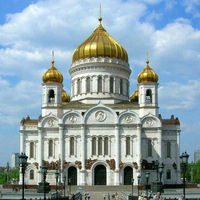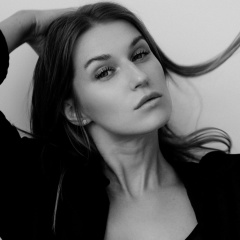Вначале всё было хорошо, и я начал было успокаиваться, - как вдруг внезапно стряслось несчастье, которого мы так боялись. В классной комнате ребёнок взлез на скамейку, поскользнулся и упал, стукнувшись коленкой об её угол. На следующий день он уже не мог ходить. Ещё через день подкожное кровоизлияние усилилось, опухоль, образовавшаяся под коленом, быстро охватила нижнюю часть ноги. Кожа натянулась до последней возможности, стала жесткой под давлением кровоизлияния, которое стало давить на нервы, и причиняла страшную боль, увеличивавшуюся с часу на час.
Я был подавлен. Ни Государь, ни Государыня не сделали мне даже тени упрёка; наоборот, казалось, что они всем сердцем хотят, чтобы я не отчаялся в задаче, которую болезнь делала всё более трудной. Они как будто хотели своим примером побудить и меня принять неизбежное испытание и присоединиться к ним в борьбе, которую они вели уже так давно. Они делились со мною своей заботой и трогательной благожелательностью.
Императрица сидела у изголовья сына с начала заболевания, нагибалась к нему, ласкала его, окружала его своей любовью, стараясь тысячью мелких забот облегчить его страдания. Государь тоже приходил, как только у него была свободная минута. Он старался подбодрить ребёнка, развлечь его, но боль была сильнее материнских ласк и отцовских рассказов, и прерванные стоны возобновлялись. Изредка отворялась дверь, и одна из Великих Княжон на цыпочках входила в комнату, целовала маленького брата и как бы вносила с собою струю свежести и здоровья. Ребёнок открывал на минуту свои большие глаза, уже глубоко очерченные болезнью, и тотчас снова их закрывал.
Однажды утром я нашёл мать у изголовья сына. Ночь была очень плохая. Доктор Деревенко был в беспокойстве, так как кровотечения ещё не удалось остановить и температура подымалась. Опухоль снова возросла, и боли были ещё нестерпимее, чем накануне. Цесаревич, лёжа в кроватке, жалобно стонал, прижавшись головой к руке матери, и его тонкое, бескровное личико было неузнаваемо. Изредка он прерывал свои стоны, чтобы прошептать только одно слово "мама", в котором он выражал всё своё страдание, всё свое отчаяние. И мать целовала его волосы, лоб, глаза, как будто этой лаской она могла облегчить его страдания, вдохнуть ему немного жизни, которая его покидала. Как передать пытку этой матери, беспомощно присутствующей при мучениях своего ребёнка в течение долгих часов смертельной тревоги, этой матери, которая знала, что она - причина этих страданий, что она передала ему ужасную болезнь, против которой бессильна человеческая наука! Как понимал я теперь скрытую драму этой жизни, и как легко мне было восстановить этапы её долгого крестного пути!
___
Алексею Николаевичу было тогда 9 лет. Он был довольно крупен для своего возраста, имел тонкий, продолговатый овал лица с нежными чертами, чудные светло-каштановые волосы с бронзовыми переливами, большие сине-серые глаза, напоминавшие глаза его матери. Он вполне наслаждался жизнью, когда мог, как резвый и жизнерадостный мальчик. Вкусы его были очень скромны. Он совсем не кичился тем, что был Наследником престола, об этом он всего меньше помышлял. Его самым большим счастьем было играть с двумя сыновьями матроса Деревенко, которые оба были несколько моложе его.
У него была большая живость ума и суждения и много вдумчивости. Он поражал иногда вопросами выше своего возраста, которые свидетельствовали о деликатной и чуткой душе. Я легко понимал, что те, которые не должны были, как я, внушать ему дисциплину, могли без задней мысли легко поддаваться его обаянию. В маленьком капризном существе, каким он казался вначале, я открыл ребёнка с сердцем, от природы любящим и чувствительным к страданиям, потому что сам он уже много страдал."
(Из воспоминаний Пьера Жильяра, преподавателя французского при детях Николая II)
Из книги "Царские дети", сост. Н. К. Бонецкая
На фотографии: Цесаревич Алексей
Я был подавлен. Ни Государь, ни Государыня не сделали мне даже тени упрёка; наоборот, казалось, что они всем сердцем хотят, чтобы я не отчаялся в задаче, которую болезнь делала всё более трудной. Они как будто хотели своим примером побудить и меня принять неизбежное испытание и присоединиться к ним в борьбе, которую они вели уже так давно. Они делились со мною своей заботой и трогательной благожелательностью.
Императрица сидела у изголовья сына с начала заболевания, нагибалась к нему, ласкала его, окружала его своей любовью, стараясь тысячью мелких забот облегчить его страдания. Государь тоже приходил, как только у него была свободная минута. Он старался подбодрить ребёнка, развлечь его, но боль была сильнее материнских ласк и отцовских рассказов, и прерванные стоны возобновлялись. Изредка отворялась дверь, и одна из Великих Княжон на цыпочках входила в комнату, целовала маленького брата и как бы вносила с собою струю свежести и здоровья. Ребёнок открывал на минуту свои большие глаза, уже глубоко очерченные болезнью, и тотчас снова их закрывал.
Однажды утром я нашёл мать у изголовья сына. Ночь была очень плохая. Доктор Деревенко был в беспокойстве, так как кровотечения ещё не удалось остановить и температура подымалась. Опухоль снова возросла, и боли были ещё нестерпимее, чем накануне. Цесаревич, лёжа в кроватке, жалобно стонал, прижавшись головой к руке матери, и его тонкое, бескровное личико было неузнаваемо. Изредка он прерывал свои стоны, чтобы прошептать только одно слово "мама", в котором он выражал всё своё страдание, всё свое отчаяние. И мать целовала его волосы, лоб, глаза, как будто этой лаской она могла облегчить его страдания, вдохнуть ему немного жизни, которая его покидала. Как передать пытку этой матери, беспомощно присутствующей при мучениях своего ребёнка в течение долгих часов смертельной тревоги, этой матери, которая знала, что она - причина этих страданий, что она передала ему ужасную болезнь, против которой бессильна человеческая наука! Как понимал я теперь скрытую драму этой жизни, и как легко мне было восстановить этапы её долгого крестного пути!
___
Алексею Николаевичу было тогда 9 лет. Он был довольно крупен для своего возраста, имел тонкий, продолговатый овал лица с нежными чертами, чудные светло-каштановые волосы с бронзовыми переливами, большие сине-серые глаза, напоминавшие глаза его матери. Он вполне наслаждался жизнью, когда мог, как резвый и жизнерадостный мальчик. Вкусы его были очень скромны. Он совсем не кичился тем, что был Наследником престола, об этом он всего меньше помышлял. Его самым большим счастьем было играть с двумя сыновьями матроса Деревенко, которые оба были несколько моложе его.
У него была большая живость ума и суждения и много вдумчивости. Он поражал иногда вопросами выше своего возраста, которые свидетельствовали о деликатной и чуткой душе. Я легко понимал, что те, которые не должны были, как я, внушать ему дисциплину, могли без задней мысли легко поддаваться его обаянию. В маленьком капризном существе, каким он казался вначале, я открыл ребёнка с сердцем, от природы любящим и чувствительным к страданиям, потому что сам он уже много страдал."
(Из воспоминаний Пьера Жильяра, преподавателя французского при детях Николая II)
Из книги "Царские дети", сост. Н. К. Бонецкая
На фотографии: Цесаревич Алексей
At first everything was fine, and I began to calm down - when suddenly the misfortune that we were so afraid of suddenly happened. In the classroom, the child climbed onto the bench, slipped and fell, knocking on his corner with his knee. The next day, he could no longer walk. A day later, subcutaneous hemorrhage intensified, a tumor formed under the knee quickly covered the lower part of the leg. The skin was tightened to the last opportunity, it became stiff under the pressure of a hemorrhage, which began to put pressure on my nerves, and caused terrible pain, which increased from hour to hour.
I was depressed. Neither the Sovereign nor the Sovereign made me even the shadow of a rebuke; on the contrary, it seemed that they wholeheartedly wanted me to not despair of the task that the disease made more and more difficult. It was as if by their example they wanted to encourage me to accept the inevitable test and join them in the struggle that they had been waging for so long. They shared with me their care and touching benevolence.
The empress sat at the head of her son from the onset of the disease, bent over to him, caressed him, surrounded him with her love, trying to alleviate his suffering with a thousand petty cares. The sovereign also came as soon as he had a free minute. He tried to cheer the child up, entertain him, but the pain was stronger than the motherly caresses and fatherly stories, and interrupted moans resumed. A door was occasionally opened, and one of the Grand Dukes on tiptoe entered the room, kissed her little brother, and as if brought with her a stream of freshness and health. The child opened for a moment his large eyes, already deeply outlined by the disease, and immediately closed them again.
One morning I found a mother at the head of my son. The night was very bad. Dr. Derevenko was worried because the bleeding had not yet been stopped and the temperature was rising. The tumor grew again, and the pain was even more unbearable than the day before. The prince, lying in the crib, moaned plaintively, his head pressed against his mother’s hand, and his thin, bloodless face was unrecognizable. Occasionally, he interrupted his moans in order to whisper only one word “mother”, in which he expressed all his suffering, all his despair. And the mother kissed his hair, forehead, eyes, as if by this caress she could ease his suffering, breathe in him a little life that left him. How to convey the torture of this mother, who was helplessly present during the torment of her child for many hours of mortal anxiety, to this mother, who knew that she was the cause of this suffering, that she had given him a terrible disease against which human science is powerless! As I now understood the hidden drama of this life, and how easy it was for me to restore the stages of its long way of the cross!
___
Alexey Nikolayevich was then 9 years old. He was quite large for his age, had a thin, oblong oval face with delicate features, wonderful light brown hair with bronze tints, large blue-gray eyes that resembled his mother’s eyes. He quite enjoyed life when he could, like a frisky and cheerful boy. His tastes were very modest. He did not boast at all that he was the Heir to the throne, he had only the least thought about it. His greatest happiness was to play with the two sons of the sailor Derevenko, who were both somewhat younger than him.
He had a great liveliness of mind and judgment and a lot of thoughtfulness. He sometimes struck with questions above his age, which testified to a delicate and sensitive soul. I easily understood that those who should not, like me, instill discipline in him, could easily succumb to his charm without a second thought. In a small capricious being, as he seemed at the beginning, I discovered a child with a heart, naturally loving and sensitive to suffering, because he himself suffered a lot. "
(From the memoirs of Pierre Gilliard, a French teacher with children of Nicholas II)
From the book "Royal Children", comp. N.K.Bonetskaya
On the photo: Tsesarevich Alexey
I was depressed. Neither the Sovereign nor the Sovereign made me even the shadow of a rebuke; on the contrary, it seemed that they wholeheartedly wanted me to not despair of the task that the disease made more and more difficult. It was as if by their example they wanted to encourage me to accept the inevitable test and join them in the struggle that they had been waging for so long. They shared with me their care and touching benevolence.
The empress sat at the head of her son from the onset of the disease, bent over to him, caressed him, surrounded him with her love, trying to alleviate his suffering with a thousand petty cares. The sovereign also came as soon as he had a free minute. He tried to cheer the child up, entertain him, but the pain was stronger than the motherly caresses and fatherly stories, and interrupted moans resumed. A door was occasionally opened, and one of the Grand Dukes on tiptoe entered the room, kissed her little brother, and as if brought with her a stream of freshness and health. The child opened for a moment his large eyes, already deeply outlined by the disease, and immediately closed them again.
One morning I found a mother at the head of my son. The night was very bad. Dr. Derevenko was worried because the bleeding had not yet been stopped and the temperature was rising. The tumor grew again, and the pain was even more unbearable than the day before. The prince, lying in the crib, moaned plaintively, his head pressed against his mother’s hand, and his thin, bloodless face was unrecognizable. Occasionally, he interrupted his moans in order to whisper only one word “mother”, in which he expressed all his suffering, all his despair. And the mother kissed his hair, forehead, eyes, as if by this caress she could ease his suffering, breathe in him a little life that left him. How to convey the torture of this mother, who was helplessly present during the torment of her child for many hours of mortal anxiety, to this mother, who knew that she was the cause of this suffering, that she had given him a terrible disease against which human science is powerless! As I now understood the hidden drama of this life, and how easy it was for me to restore the stages of its long way of the cross!
___
Alexey Nikolayevich was then 9 years old. He was quite large for his age, had a thin, oblong oval face with delicate features, wonderful light brown hair with bronze tints, large blue-gray eyes that resembled his mother’s eyes. He quite enjoyed life when he could, like a frisky and cheerful boy. His tastes were very modest. He did not boast at all that he was the Heir to the throne, he had only the least thought about it. His greatest happiness was to play with the two sons of the sailor Derevenko, who were both somewhat younger than him.
He had a great liveliness of mind and judgment and a lot of thoughtfulness. He sometimes struck with questions above his age, which testified to a delicate and sensitive soul. I easily understood that those who should not, like me, instill discipline in him, could easily succumb to his charm without a second thought. In a small capricious being, as he seemed at the beginning, I discovered a child with a heart, naturally loving and sensitive to suffering, because he himself suffered a lot. "
(From the memoirs of Pierre Gilliard, a French teacher with children of Nicholas II)
From the book "Royal Children", comp. N.K.Bonetskaya
On the photo: Tsesarevich Alexey

У записи 10 лайков,
1 репостов,
477 просмотров.
1 репостов,
477 просмотров.
Эту запись оставил(а) на своей стене Вероника Вовденко





























